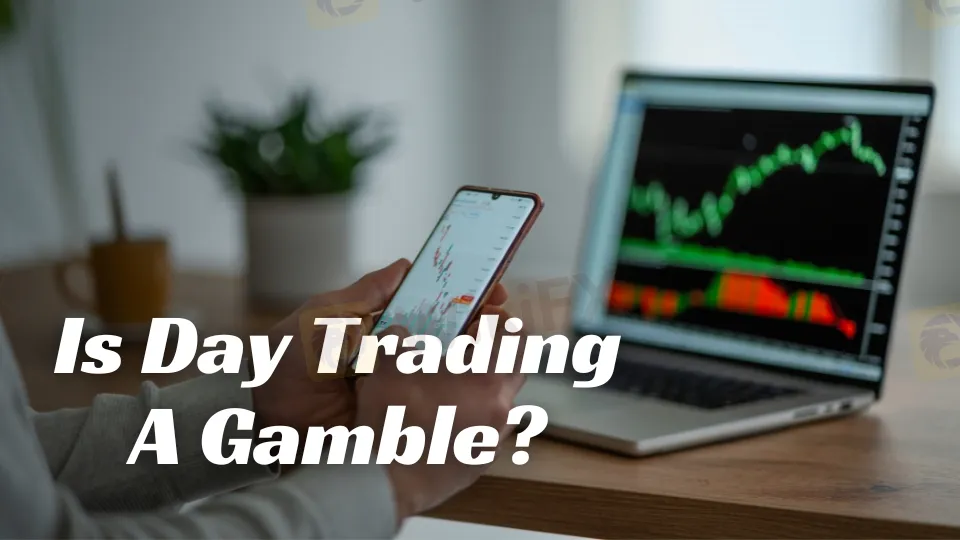Is Day Trading a Gamble? Understanding the Key Differences
abstrak:Discover if day trading is truly a gamble. Learn key differences between trading and gambling, and explore strategies to succeed in the fast-paced trading world.

Day trading has an undeniable allure—the thrill of potential quick profits often draws newcomers, eager to make a fortune in a single day. However, for those with little knowledge of how the markets function, the rapid decision-making, and unanticipated price swings can feel overwhelming. The high-risk nature of day trading often leads to the pressing question: Is day trading a gamble? To answer that, we must first understand what day trading is, how it differs from gambling, and what strategies can be employed to turn trading into a calculated endeavor rather than a risky bet.
Day Trading: More Than Just a Roll of the Dice
Day trading is a short-term strategy where traders buy and sell various financial instruments—stocks, currencies, commodities, or futures—within the same trading day. The goal is to profit from small price movements in these assets by entering and exiting trades quickly. Unlike long-term traders, who hold positions for weeks or even years, day traders aim to avoid overnight risks by closing all trades before the market closes. This rapid pace of trading brings significant risks, particularly for those using leverage, which magnifies both potential gains and losses.
The key to successful day trading lies in using technical analysis, monitoring the market, and staying informed about current events that can influence prices. Skilled day traders rely on patterns, economic indicators, and historical data to predict market movements, setting themselves apart from gamblers who depend primarily on luck.
The Differences Between Day Trading and Gambling
At first glance, both day trading and gambling might seem like high-risk activities where fortunes can change in a heartbeat. However, the similarities end there when examined more closely:
- Skill and Strategy vs. Luck
- While gambling is largely based on chance, day trading requires a foundation of knowledge, experience, and constant learning. Day traders rely on technical analysis, studying price charts, economic trends, and news events to make informed decisions.
- Gambling, on the other hand, offers very little control. Whether playing a slot machine or betting on a roulette wheel, the outcome is mostly random. While basic strategies can help improve odds slightly, skill has little impact on the final result.
- Long-Term Thinking vs. Short-Term Gratification
- Day trading may focus on short-term gains, but successful traders operate with a long-term strategy in mind. They understand that losses are part of the process, and focus on consistent gains over weeks, months, or even years.
- In contrast, gambling often emphasizes instant results. Each bet is independent, with no forward-looking strategy or consideration for cumulative outcomes. The gamblers focus is usually on the next win, rather than a sustainable approach to risk.
- Risk Management
- Day traders implement strategies to manage risk, such as stop-loss and take-profit orders to automatically close positions at predetermined points, minimizing losses or securing gains. They also limit how much of their capital is exposed in a single trade.
- Gamblers, on the other hand, often place their entire stake on a single outcome with little control over the result. This “all-or-nothing” mentality increases the risk of losing everything, with no systematic approach to mitigating losses.

When Day Trading Becomes a Gamble
Although day trading is rooted in skill and analysis, there are instances where traders adopt a gambling mindset, increasing the risk of failure. Heres how day trading can slip into gambling territory:
- Emotionally Driven Trades: Fear, greed, and anxiety can lead traders to make impulsive decisions, reacting to short-term market fluctuations without proper analysis.
- Misuse of Leverage: Over-leveraging can quickly turn a bad trade into a catastrophic loss, much like a gambler who bets more than they can afford to lose.
- Lack of a Trading Plan: Without a clear trading strategy, traders may execute random trades, much like a gambler placing arbitrary bets without considering the odds.
How to Avoid Gambling in Day Trading
Becoming a smart day trader means approaching the market with discipline and strategy. Here are some steps you can take to ensure your day trading doesnt become a gamble:
- Build a Trading Plan
- A trading plan outlines your goals, the types of trades you‘ll make, and the risk management strategies you’ll use. By defining your rules ahead of time, youll avoid emotional, spur-of-the-moment decisions that can lead to significant losses.
- Manage Your Emotions
- Trading is as much a psychological game as it is a technical one. Maintaining emotional control is key to avoiding rash decisions driven by fear or greed. If a trade goes against you, stick to your plan rather than making impulsive moves to recover losses.
- Use Risk Management Tools
- Stop-loss orders and position sizing are essential tools for any day trader. These strategies help limit potential losses and protect your capital, ensuring that no single trade can wipe out your account.
Conclusion
Day trading is a high-risk, high-reward activity that demands skill, discipline, and continuous learning. While it shares some superficial similarities with gambling, the key difference lies in the strategic approach. Successful day traders rely on a well-thought-out plan, technical analysis, and risk management, while gamblers depend on chance. By staying informed, practicing emotional control, and sticking to a sound strategy, you can ensure that your day-trading endeavors remain grounded in skill rather than luck.
In the end, day trading is about calculated risks. With the right tools, mindset, and education, you can increase your odds of success—making it more than just a game of chance.

Broker ng WikiFX
Exchange Rate
